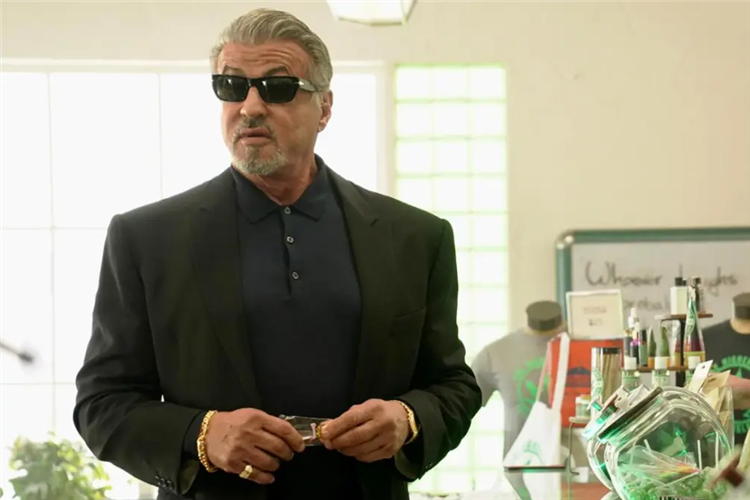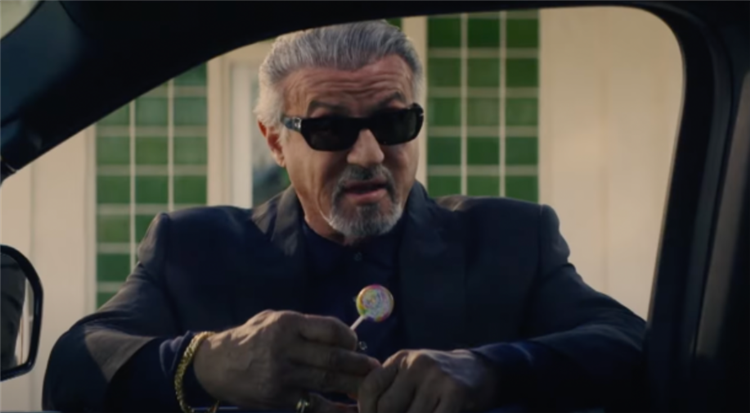“He’s expecting to be rewarded for being a good soldier. Instead, he gets shipped out unceremoniously to Tulsa, Oklahoma, which for him might as well be another planet,” showrunner Terence Winter tells EW of his new series Tulsa King. “He’s also kind of out of a time capsule. He went away in 1997 when the internet was just getting started and before cell phones were rampant and before Uber. So he’s really a guy who’s out of time.”
EW spoke to Winter about what to expect from the Stallone-led series, which is the latest from executive producer Taylor Sheridan (Yellowstone).
TERENCE WINTER: It started with Taylor Sheridan. He wrote a first draft and came to me. And because Taylor is so incredibly busy, he said, “I can’t possibly direct as well, but maybe if we can get Terry Winter to do it.” I read the pilot and said “I’m in” immediately, just absolutely went for it. Not only to work with Taylor, but to work with Sly, I was like, “Absolutely.” So basically I took the ball and ran with it. So it all came from literally Taylor’s first draft of the script.
The other thing that makes the character intriguing for me is that he spent 25 years working out and reading every day. So he’s a very different person than he was when he went in. He’s very smart, very well read. He’s extremely formidable despite the fact that he’s 75 years old. And he’s kind of trying to be a better man. So we throw all that into the mix and it’s this really fun fish-out-of-water dark comedy. And to have Sly at the helm of this as an actor is just a dream come true for me.
So Sly was already attached when you came on board?

As far as I knew, he was. It was presented to me as: Here’s a pilot that Taylor wrote. Sly Stallone is attached. And I was like, “Where do I sign?”
It just feels right that he’s the latest movie star to embrace TV.
The great thing about doing TV is you’ve only got a certain amount of real estate in a feature. And TV, you’ve got hours and hours and hours to spend with this character. So you can really dig deep into who this person is and how they got to become who they are, and really go on this really rich, emotional journey. By the time, God willing, you’re a few seasons in, you’ve created a universe of characters who have backstories and who interact with each other. And you just don’t get to do that in a movie.
We did 83 hours of The Sopranos and I did 56 hours of Boardwalk Empire and had a lot of time to get to know people. And I think for an actor, that’s really appealing. They get to really dig deep. And I think the exciting thing, certainly for me, for writing for Sly, and I don’t want to put words in his mouth, but he’s expressed the same level of enthusiasm, is to really dig deep emotionally. I think people are going to be really thrilled to see the depth here and the real sense of humor and the heart and the emotion, in addition to the stuff we all know and love, the great action stuff and Sly being physical. He’s also really funny. He’s one of these sharp-witted, New York guys who is dropped into the middle of nowhere with people he has nothing in common with, so it can’t help but lend itself to comedic situations.
It feels like it’s been a minute since we’ve seen Stallone get to flex comedic muscles.

Absolutely. I mean, I remember the first time I saw Rocky. I was like, “Man, this guy.” And if you would’ve told me then one day I’d get to work with him and write for him? It’s a dream come true. And to get to do something different. I think in his career, which has spanned decades, it’s really wonderful that he gets to stretch muscles that he has rarely gotten to use. And I think he’s really enthused coming to work every morning.
Well, in terms of where we go once he gets to Tulsa, are we essentially, in terms of the story, watching this guy just build a new network of people? What is the moving force of the season?
Yeah. It’s a reassessment of his life choices, based on his former mob family, and learning things about them that he didn’t necessarily know. And also, he’s sent out there to stake a claim and send money back home. So he is building his own mob crew more or less, not an Italian mafia crew, but a crew of people to help him earn money, but he’s also building a life. So he’s also trying to repair the life that he left and lost back in New York. So there’s a lot of stuff going on. He’s sort of at odds with this New York family, while simultaneously building a new one in Oklahoma, and also trying to rectify his broken relationship with his actual family in New York.
Why Tulsa?
It was originally set in Kansas City, which felt too big, too cosmopolitan. They already have an active mob presence in Kansas City. So I wanted somewhere that you’d never heard an Italian mafia family have anything to do with. And there probably could have been other states, but Oklahoma also just felt so American. I mean, obviously the musical comes to mind. It just feels like the heart of America. We said, “What is the most unlikely place you might put this character?” And certainly Tulsa is; it might as well be Mars.
You mentioned The Sopranos and Boardwalk Empire. You have built some of the most famous mob stories. How do you feel like this one differs?

Well, I mean, adding the Western component to it was a stroke of genius on Taylor’s part. It’s a fish-out-of-water story. The closest this guy’s ever been to a horse is at the race track. And suddenly he’s literally around people who are rodeo riders and there’s stuff that takes place at actual ranches. It’s automatically funny. It’s two tried and true genres of cinema mixed together. And it’s sort of like, remember those old ads for Reese’s Peanut Butter Cup, where the chocolate crashes into the peanut butter, and it’s like, “Oh my God, it’s even better now.” You got these two worlds. And he’s sort of slowly acclimating to this new universe that he finds himself in. And at first it’s a little weird and he’s a little resistant, but as the season progresses and certainly as the series progresses, he creates a new home and a new family for himself.
